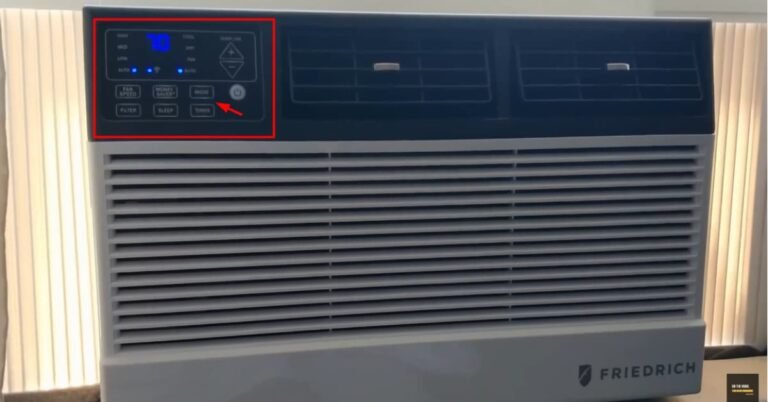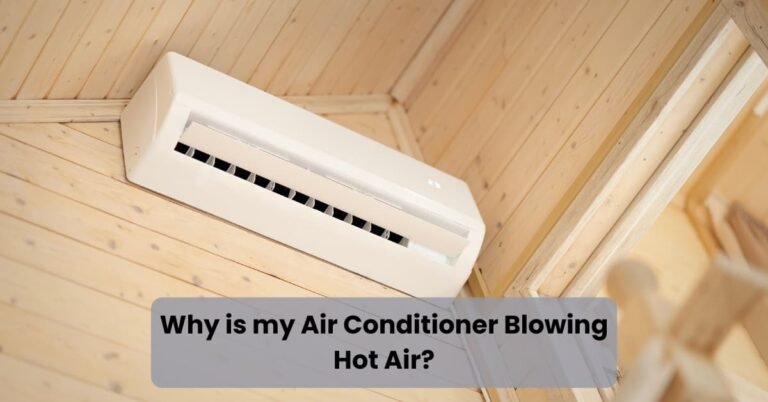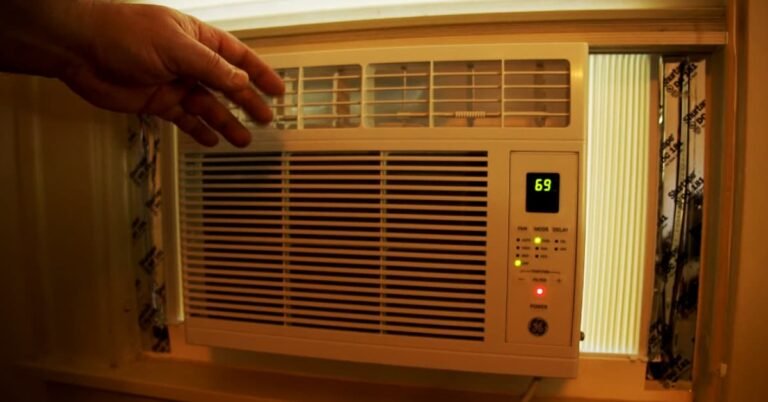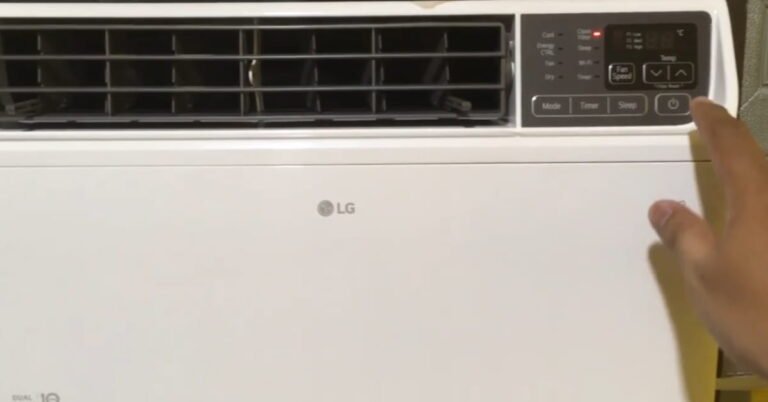Window Air Conditioner Making Clicking Noise- How to Fix
When your window air conditioner starts making a clicking noise, it could indicate various potential problems within the unit. It is essential to identify the source of these clicks to prevent further damage and to maintain consistent cooling comfort.
These sounds may be caused by issues such as loose components, faulty fan blades, or electrical malfunctions. These noises may lead to more severe problems, requiring professional repair or even premature replacement.
Regular maintenance and timely addressing of any unusual noises can help extend the lifespan of your window air conditioner.
Causes Of Window Air Conditioner Making Clicking Noise
A window air conditioner making clicking noises can be troublesome. Various issues can cause this problem. Loose parts inside the unit often produce clicking sounds. Debris or external obstructions can also lead to these noises. Problems with the fan, such as bent blades, can create clicks.
Loose Parts
Loose parts inside the air conditioner are a frequent cause of clicking noises. Over time, screws, bolts, and other components can become loose due to vibration and normal use. When these parts move or rattle, they can produce a clicking sound. Identifying and tightening these parts is often a simple fix.
Obstructions
Obstructions within the unit can also cause clicking noises. Debris like leaves, dirt, or small objects can get inside the air conditioner and interfere with its components. External objects leaning against the unit can also create similar noises. Ensuring that the unit is free from obstructions can help eliminate these sounds.
Fan Issues
Problems with the fan are another common cause of clicking noises. Bent fan blades can strike other parts of the unit, producing a clicking sound. Additionally, issues with the fan motor can result in various noises, including clicking. Inspecting and repairing or replacing the fan or motor can resolve these issues.
Electrical Issues
Electrical components within the air conditioner can also be the source of clicking noises. Relay switches and capacitors may click when they malfunction. These electrical problems often require professional attention to be diagnosed and repaired correctly.
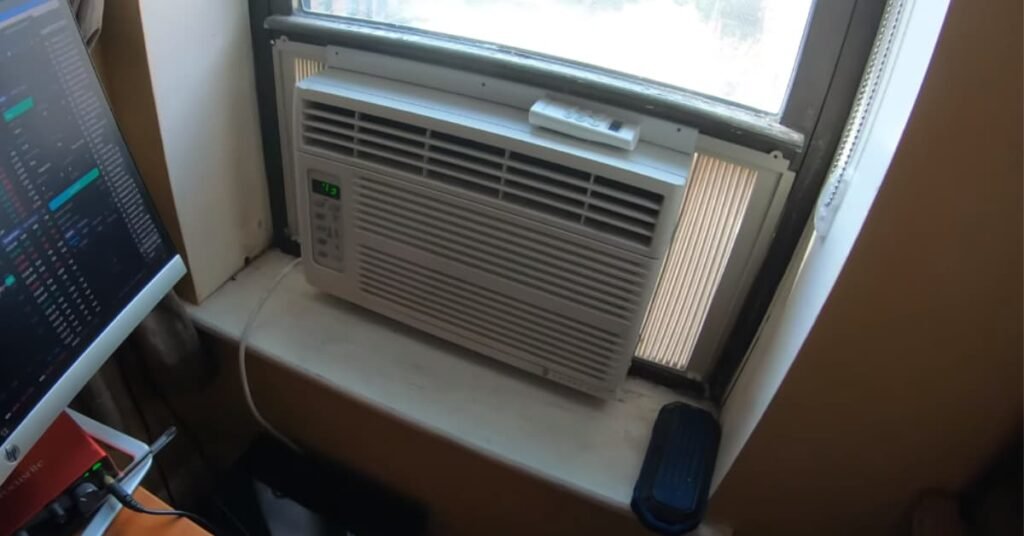
Step-by-Step Troubleshooting Guide
Troubleshooting a window air conditioner and making clicking noises can seem challenging. Following a systematic approach helps. This step-by-step guide will help you identify and fix common causes of clicking sounds.
Safety First
Before beginning any troubleshooting, ensure the air conditioner is turned off and unplugged. This will eliminate the risk of electrical shock or injury. Wearing protective gloves and eyewear is also advisable when working with electrical appliances.
Inspect for Loose Parts
Using a screwdriver, open the cover of the air conditioner and inspect for loose screws, bolts, or other components. Tighten any loose parts you find. This simple step can often resolve the clicking noise quickly.
Check for Obstructions
Carefully open the unit and look inside for any debris or objects that may be causing the noise. Remove any debris or foreign objects. Additionally, check around the outside of the unit to ensure nothing is leaning against it.
Examine the Fan
Inspect the fan blades to see if any are bent. Gently straighten any bent blades. Manually turn the fan blades to ensure they move freely without resistance. If the fan motor appears to be the issue, it may need to be repaired or replaced.
Electrical Component Check
Identify the relay switches and capacitors in your unit. Listen for consistent clicking from the relay switches, which may indicate a problem. Check the capacitors for any visible signs of damage or wear. If these components seem faulty, consider consulting a professional for repair or replacement.
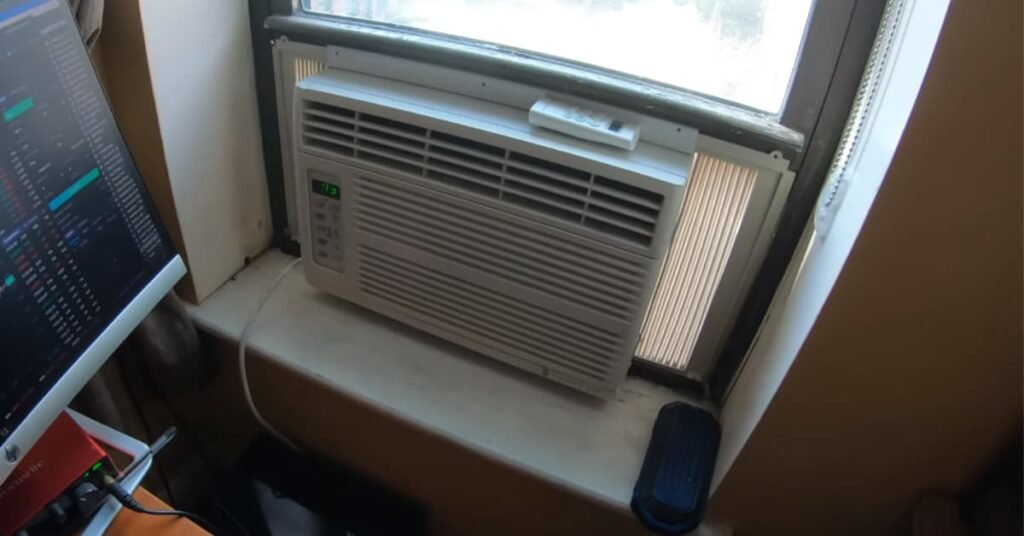
Preventive Maintenance Tips
Regular maintenance of your window air conditioner is essential for its longevity and performance. Preventive measures can help avoid unexpected issues and costly repairs. Here are some practical tips to keep your unit running smoothly.
Regular Cleaning
Consistent cleaning of your air conditioner can avert numerous problems. Clean the filters and coils at least once a month to ensure efficient operation and reduce the risk of noise. This simple maintenance step can extend the life of your unit.
Routine Inspections
Conduct periodic inspections of your air conditioner to check for loose parts and obstructions. Secure any loose screws and clear away any debris. AC Regular checks can help prevent clicking noises and other problems from developing.
Professional Servicing
Annual professional servicing is important for maintaining your air conditioner. A technician can thoroughly inspect and maintain your unit, preventing many problems, including clicking noises. Schedule annual maintenance with a reliable technician to keep your air conditioner in top condition.
When to Replace Your Air Conditioner?
Deciding when to replace your air conditioner can be challenging. Several factors can indicate it’s time for a new unit. Age is a significant consideration; most window air conditioners last 10-15 years. Frequent breakdowns and reduced cooling efficiency are also signs that replacement might be necessary.
Age of the Unit
Consider the age of your air conditioner when evaluating whether to replace it. Most window air conditioners last around 10-15 years. If your unit is older, replacement might be more cost-effective than continued repairs.
Cost of Repairs vs. Replacement
Weigh the cost of repairs against the expense of a new unit. Frequent repairs can become expensive, and a new unit may offer better energy efficiency and lower operating costs. Evaluate whether investing in a new air conditioner is a better long-term solution.
Signs It’s Time to Replace
Look for signs that it’s time to replace your air conditioner. Frequent breakdowns and reduced cooling efficiency are clear indicators. If repairs are needed often, a new unit may be a more reliable and cost-effective option.
Conclusion
Addressing clicking noises in your window air conditioner is crucial for maintaining its performance and longevity. Simple inspections and regular maintenance can often resolve the issue. If the problem persists, seeking professional help may be necessary. Don’t ignore the noise, as it could lead to more significant problems and higher repair costs.


